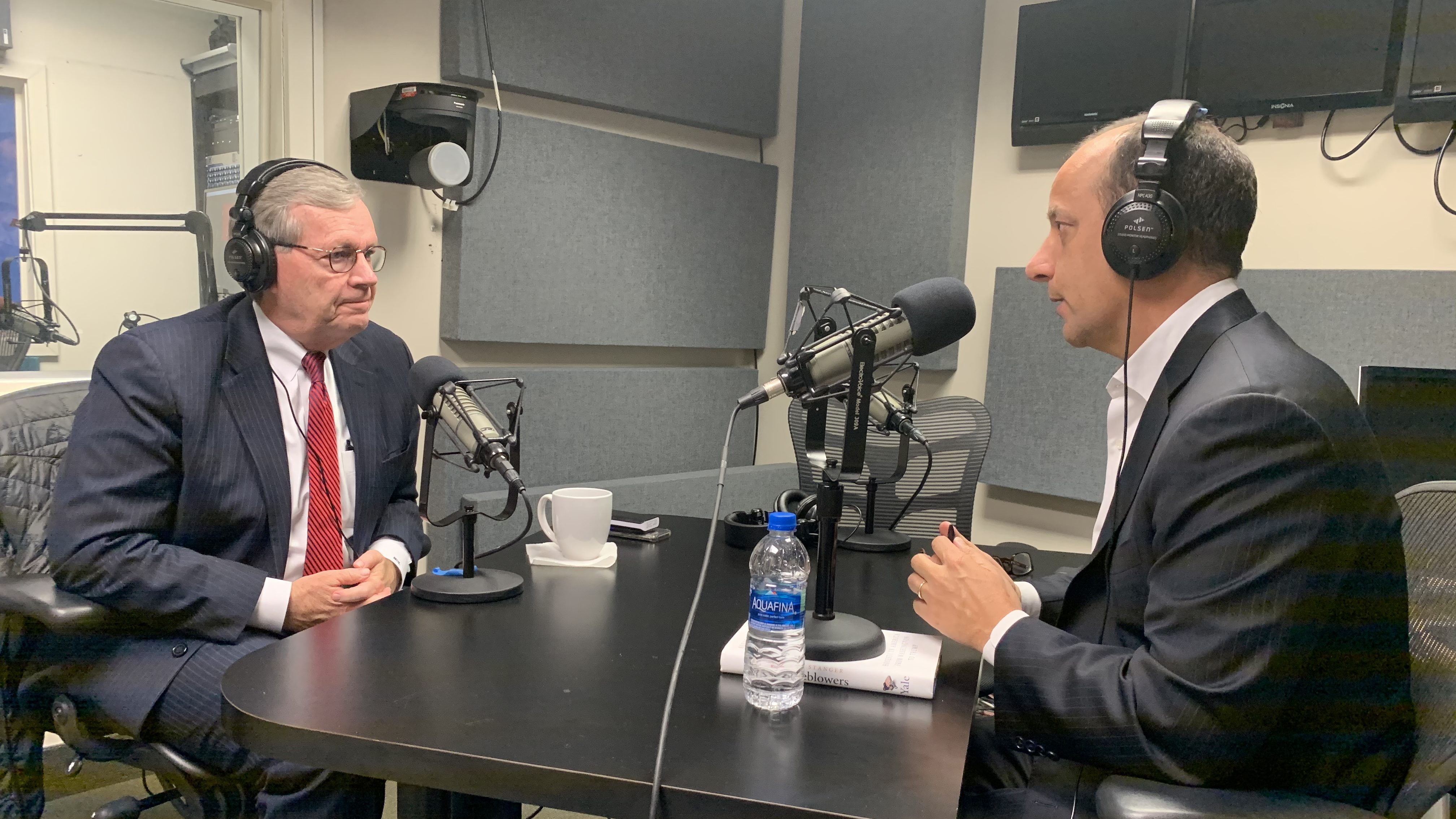Blog
March 16, 2020
The Romney transition to power plan
Former governor of Utah and Romney Transition chairman, Mike Leavitt, shares how he planned the 2012 presidential transition had Mitt Romney won the election. Leavitt describes his experience leading the first transition to operate under the Presidential Transition Act of 2010, how the new guidelines changed the narrative around transition planning and how his team planned to follow the “gold standard” president Bush and Obama set in the 2008 transition.
Listen, rate and subscribe on Apple Podcasts, Spotify, Stitcher and TuneIn.
[tunein id=”t140011260″]Read the highlights:
Dave: “So fast forward to the election, obviously the election outcome wasn’t what you wanted. How did you feel and what was your retrospective on this project?”
Leavitt: “I’ve been involved in public policy for many years in different roles. And I would say that it was among the most challenging things and maybe the most exhilarating experience I have had in a concentrated period of four or five months.”
Dave: “I’ve heard you say this before – you were a three-time governor, secretary of health [and human services], head of the EPA, very prominent positions. But you said this was the most exciting, interesting, challenging thing you’ve ever done.”
Leavitt: “I was given an opportunity to essentially stand up a government. Now, there’s obviously a constitution and laws and history and tradition, but this brought together a circumstance where I was required to call on my knowledge of lots of different issues. My knowledge about how state, local and national government works. The experience I had had working with members of Congress, having been a cabinet member myself, having worked at the white house. You can’t go through it without the belief that first of all, you’re doing something important. And second of all, that your candidate has a very good chance to win. And that this is a live-fire exercise you’re playing with has real consequence. And I felt that every day. Now, there were days when it felt there was more certainty that this would actually be implemented than others. But, I remember going to Boston for election night and had with me boxes of paper that would be put in front of the president-elect the next day starting at three o’clock and a whole series of decisions that needed to be made. We had a planning construct that I thought was extraordinarily useful.”
Gov. Leavitt discussed his experience learning about planning transitions as he began the process of planning one, and why he felt it was important to document the process.
Dave: “You had been governor three times and had been HHS secretary, but you didn’t really know much about transitioning to the presidency. So how did you get up to speed? How did you learn? What did you do? ”
Leavitt: “The truth is I couldn’t find anyone who did. There was nothing aside from a couple of books that tend to have focused on the drama in the actual transition and not so much the preparation. I interviewed anyone I could find to begin to understand what needed to be done. In some ways part of the problem had been that there was no template for this, so we concluded very early we would keep good track of what we did. People could learn from our mistakes. And I think on balance that turned out to be a good strategy.”
Governor Leavitt on the experience working with the Obama White House while running a campaign against Obama, and how both teams worked tirelessly to prepare for the transition.
Leavitt: “We actually worked with Obama administration people. We had people who had been with the Bush administration and I recall a phrase that was used, “We’re all going to leave our swords at the door and have a discussion about something very important to the American people.” And I thought at the time – this would inspire Americans if they could see the seriousness with which this was being taken, to see opposing campaigns and the administration actually working together now. I had been in the cabinet when Bush 43 transitioned to the Obama administration and therefore it was the gold standard for transition. I was instructed by George W. Bush that we’re going to make this the best transition of power ever. And that led by example because by the time we got to the point of the 2012 election, Barack Obama issued a very similar kind of standard. ”
Dave: “So most candidates would have said, it’s presumptuous for us to talk to people in Congress until [you win], when actually it’s one of the great innovations that you led, which is to talk to people on the Hill about getting people confirmed quickly – the priority positions. Why did you do that and weren’t you worried about being seen as too presumptuous?”
Leavitt: “One of the benefits of the 2012 transition was that we were under an obligation put forward by the Presidential Transition Act of 2010 to do this. Prior to that, candidates had been essentially required to do this under the cover of darkness because their opponent would routinely charge them with measuring the drapes at the oval office and it became a campaign issue. So we were very careful to make it low key, but we did have the mandate. And so we would play [play?] very directly with the Congress. We had candid conversations that we’re in the process of planning a transition. We acknowledge what this is and what it isn’t, but we are going to need your help. And so we knew that one of our primary objectives was we needed to work our way through a whole series of processes that would start with clearances and then would move into confirmation hearings that were required. ”
